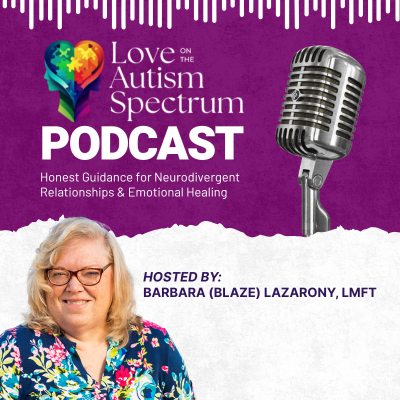If you live with ADHD, you already know it can feel like you’re constantly one step behind, juggling too many tabs in your mind, and teetering on the edge of burnout. It’s more than being distracted or forgetful; many with ADHD can experience feeling overwhelmed by daily demands. It’s an exhaustion that settles deep in your bones. And when it flares up, even simple tasks can feel impossible.
In this blog post, we’ll explore what ADHD overwhelm and burnout actually look like, where they come from, and most importantly, what you can do to feel more in control. My goal is to help you understand your nervous system, not override it. Whether you’ve recently been diagnosed or you’ve known for years, these strategies will meet you where you are.
3 Key Takeaways
- ADHD burnout is real and happens when your brain, body, and emotions hit overload from trying to keep up with systems not built for you.
- Learning to spot the early signs of burnout—physical, emotional, and cognitive—can help you course-correct before things spiral.
- Managing ADHD overwhelm is not about “trying harder”—it’s about slowing down, simplifying, and supporting your nervous system with structure and self-compassion.
- Developing executive function skills is crucial for planning, initiating, and achieving goals, especially for those experiencing ADHD overwhelm. These skills help overcome challenges related to executive dysfunction and can be improved through targeted coaching and techniques.
What Is ADHD Overwhelm and Burnout?
ADHD burnout isn’t laziness or lack of motivation—it’s the crash after too many days of trying to keep up with invisible expectations. It’s what happens when the demands on your attention, focus, and executive functioning outpace your capacity over time.
Maybe you’ve noticed this cycle: you power through a stretch of productivity, only to hit a wall where everything feels too much. Your sleep gets disrupted. Your patience runs thin. You find yourself zoning out or panicking over things that used to feel manageable. That’s not failure. That’s your nervous system saying, “I can’t do this like this anymore.” ADHD impacts the executive functions needed to manage tasks, leading to burnout.
Burnout is a signal—not a flaw.
Common Challenges for ADHD Brains
Executive Functioning Fatigue
Many of my clients describe living with ADHD as feeling “on” all the time—monitoring tasks, tracking time, filtering distractions, trying to remember what they just forgot. That’s executive functioning fatigue. Your brain is working overtime, often with very little external structure to support it.
Additionally, individuals with ADHD often struggle to initiate tasks, particularly in high-stress situations, which can exacerbate feelings of overwhelm and contribute to executive functioning fatigue.
Perfectionism and People-Pleasing
Especially for women and AFAB folks with ADHD, there’s often a history of masking or overcompensating. Saying yes when you want to say no. Doing too much to prove your worth. This internal pressure compounds the external overwhelm. The constant need to overcompensate can lead to emotional overwhelm, where the intense feelings make it difficult to think rationally and can trigger survival responses.
Delayed Diagnosis and Misunderstood Needs
So many adults with ADHD were missed as children, especially if they weren’t the stereotypical “hyperactive boy.” As a result, they grew up without language or support for their differences—and still carry the weight of years of unaddressed stress and shame. This often leads to adults with ADHD feeling more overwhelmed than neurotypical adults due to their inability to manage excessive emotions and information.
The Warning Signs and ADHD Symptoms of Burnout
Let’s slow down and notice the red flags. These are the body’s ways of saying “pause” before it turns into a full system shutdown:
Cognitive overwhelm, where an individual experiences an excessive number of thoughts simultaneously, can also be a warning sign of ADHD burnout.
Physical Signs
- Chronic fatigue or sleep disruptions
- Headaches or increased tension in the body
- Changes in appetite or energy levels
- Feeling like your entire body essentially freezes, which can be a physical sign of ADHD burnout
Emotional Signs
- Feelings of guilt, shame, or failure
- Emotional outbursts or frequent irritability
- Anxiety and hopelessness
- Emotional dysregulation, such as intense feelings or reactions, which can lead to meltdowns in children or emotional shutdowns in adults due to overstimulation and the inability to process emotions effectively
Cognitive Signs
- Trouble concentrating or remembering things
- Difficulty starting or finishing tasks
- Mental fog or decision fatigue
- Inability to carry out executive functions
If you’re checking a few of these boxes—know that you’re not alone, and help is available.
Why ADHD Overwhelm Happens and How to Control Your ADHD Overwhelm
Sensory and Emotional Overwhelm
Too much noise, too many tabs open, too many feelings at once—it adds up. ADHD often comes with heightened sensitivity to both your environment and your own emotions, leading to sensory overload.
Time Blindness and Task Pile-Up
You might plan to do “just one thing” and look up to find hours gone, or the day lost in half-started to-do lists. That disorientation is part of the executive functioning challenge—and it can lead to big emotional crashes. To manage task pile-up, try focusing on completing one task at a time to avoid feeling overwhelmed.
Lack of Boundaries or Recovery Time
Many ADHD folks were taught to “push through” or over-function to feel worthy. But without rest, recovery, and permission to be human, your system starts to shut down. When faced with too many tasks, the overwhelming sensation can lead to a lack of recovery time, exacerbating the challenges of managing daily responsibilities.
What Helps: 6 Grounding and Coping Strategies
These aren’t quick fixes—but they are powerful shifts that honor your wiring, not shame it.
Additionally, identifying triggers and using strategies to control ADHD overwhelm can help manage overwhelming situations effectively.
1. Start With Self-Compassion
Burnout thrives on self-blame. Interrupt the spiral by speaking to yourself the way you’d speak to a struggling friend. “Of course this is hard. Of course I’m tired. I deserve care, not criticism.” Managing ADHD overwhelm while overwhelmed can also be approached with self-compassion, recognizing that these intense feelings are a part of the condition and deserve understanding and patience.
2. Build a Gentle Structure
Use visual supports, reminders, and predictable routines. Make your environment do some of the work for you so your brain doesn’t have to. Building structure can support the executive functions needed to manage tasks effectively.
3. Simplify, Then Simplify Again
Not everything needs to be done now—or perfectly. Choose one priority per day. Break it into small, doable steps. Let “good enough” be enough.
To simplify tasks further, consider breaking them down into specific tasks to make them more manageable.
4. Practice Active Rest
Rest doesn’t always mean sleep. It might mean movement, time in nature, coloring, or music. Your nervous system needs moments of safety and regulation to reset, and you can practice mindfulness to help achieve this. Practicing active rest can also aid in emotional regulation, helping individuals manage their emotions more effectively.
5. Set Boundaries (Even If It’s Uncomfortable)
It’s okay to say no. It’s okay not to explain yourself. Boundaries are not meant—they’re medicine for burnout. Setting boundaries can help manage circumstances that can lead to feeling overwhelmed, especially for those with ADHD.
6. Ask for Help
Therapy, coaching, medication, and community—these are not last resorts. They are tools, and resources like ‘beyond booksmart can help’ can provide additional support. You don’t have to do this alone, and you were never meant to. Additionally, a mentoring company for school classrooms can provide further assistance tailored to educational environments.
Recovery and Resilience Are Possible
ADHD burnout can feel like a trap, but it isn’t permanent. With the right support, tools, and mindset shifts, your nervous system can heal. You can learn to work with your brain instead of against it. The first step is slowing down enough to listen—and letting yourself be helped.
ADHD overwhelm can essentially disrupt the ability to manage tasks effectively, leading to frustration and emotional shutdown, which can impact recovery and resilience.
Final Thoughts
You don’t need to be more productive. You need to be more supported.
Burnout is not a personal failure—it’s a relational, structural, and nervous system issue. Start with one small act of self-care today. And if you’re looking for a place to feel seen, validated, and supported, I’d love to invite you to book a FREE Clarity & Connection Zoom with me. You’re not broken. You’re just tired. Let’s find your way back together.
Frequently Asked Questions
What is ADHD burnout, and how is it different from regular burnout?
ADHD burnout happens when your brain is under constant executive functioning stress. It’s not just being tired from work—it’s a whole-body depletion from trying to manage systems not designed for neurodivergent wiring.
Attention deficit hyperactivity disorder (ADHD) contributes to this burnout by making it difficult to manage tasks and cope with sensory overload.
Why do I feel more tired than others with the same workload?
ADHD brains are working overtime to regulate attention, emotion, and focus. That internal labor is invisible but exhausting, and without coping strategies, accommodations, or rest, it leads to burnout faster. The ADHD brain struggles with processing information and managing overwhelming stimuli, which further contributes to feeling more tired.
How do I explain ADHD burnout to my partner or boss?
Use simple language like: “My brain is overcapacity from juggling tasks and emotions. I need time and support to recover so I can function again.” You don’t have to justify exhaustion—you can name it. Individuals with ADHD can feel flooded by excessive emotions when experiencing burnout, making it difficult to process information and manage their feelings.
Is medication the only solution for ADHD burnout?
Not at all. Medication can help regulate attention and mood, but therapy, lifestyle shifts, boundary work, and nervous system care are just as important. Burnout recovery is holistic. It is also crucial to seek professional help when feeling overwhelmed, as healthcare providers can offer support and effective treatment options.







